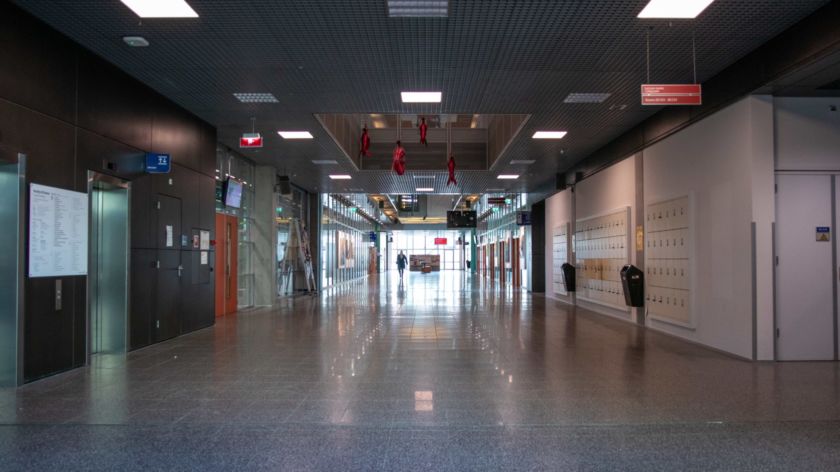How do we look at covid during flu season? ‘We need to restructure society’
-
 De campus van de Radboud Universiteit tijdens de eerste coronagolf. Foto: Rein Wieringa
De campus van de Radboud Universiteit tijdens de eerste coronagolf. Foto: Rein Wieringa
How will we handle infectious diseases in the future? Professor Marianne Boenink saw how the pandemic not only changed our behaviour, but also our view on illnesses.
Now a new season of colds and the flu is on the rise, the same question is asked throughout society: will there be a new wave of covid? And if so: how will we handle it? For many, the accumulated immunity means the virus is nowhere near as dangerous as it was at the start of the pandemic. So will we soon be treating covid like the flu? Or the flu as covid?
‘We used to think that the flu was no reason not to go to work’, says Marianne Boenink, professor of healthcare ethics at Radboud University. ‘Contagiousness was associated with childhood diseases. You didn’t take it too seriously. Nowadays we are more aware of how we can infect each other and so it is much more usual to stay at home when you have symptoms.’
Infectious diseases
We’ll have to wait and see whether that will remain the case, Boenink knows. ‘It would be great if we would apply these insights and mannerisms to other infectious diseases. But it could also be that we are going to view things such as staying at home and not shaking hands as restrictions that strictly apply to covid. Which should then become less and less relevant.’
One thing that Boenink is sure of, is how covid changed our view on illnesses. ‘Before the pandemic, we saw a health issue as something that, to an extent, was often controllable. Something that we -almost mechanically – could fix: if something is wrong in our bodies, we look for something who can repair it.’
‘Before the pandemic, we saw a health issue as something that, to an extent, was often controllable’
Even though this approach does work for things such as a bone fracture, it is too simplistic to view illnesses the same way, Boenink thinks. ‘If you do that, you only tackle the problem the moment it arises. Because of covid, we saw that that doesn’t always work.’
Complex cohesion
Boenink is happy with that insight. ‘That complex cohesion between a disease, individual behaviour, and the behaviour of society is something we had not experienced on this scale yet and was suddenly made extremely visible by covid.’ The ethicist is aware that infectious diseases cannot be compared with things such as breast cancer or cardiovascular diseases, but according to her it is not a bad thing to start looking at options for these diseases other than ‘preventing’ and ‘curing’.
‘We need to start wondering how we can restructure society’
So what should we be looking at? ‘We need to start wondering how we can restructure society, whether we can live with certain diseases – and if so, how.’ According to Boenink, that will come down to shared responsibility. ‘If we all think that everyone should be able to participate in society, we will have to restructure her so.’
Although Boenink understands that everyone wants to forget covid as quickly as possible, she hopes that we won’t immediately forget everything. ‘It is important to realise that there is cohesion between your body, your behaviour, your environment, and how society is structured. But also that our health – without having realised it before – is quite dependent on each other.’
Translated by Jan Scholten.




